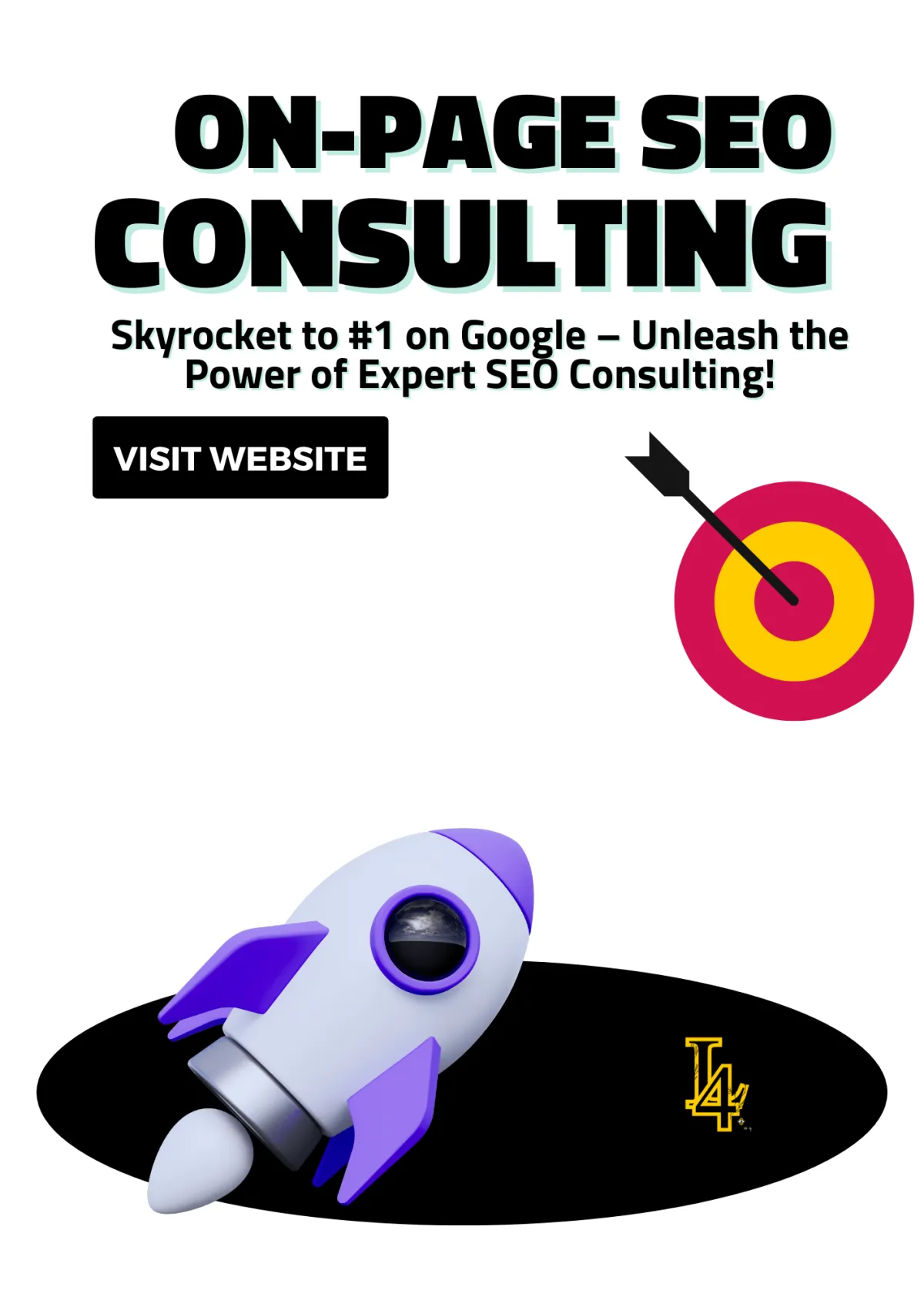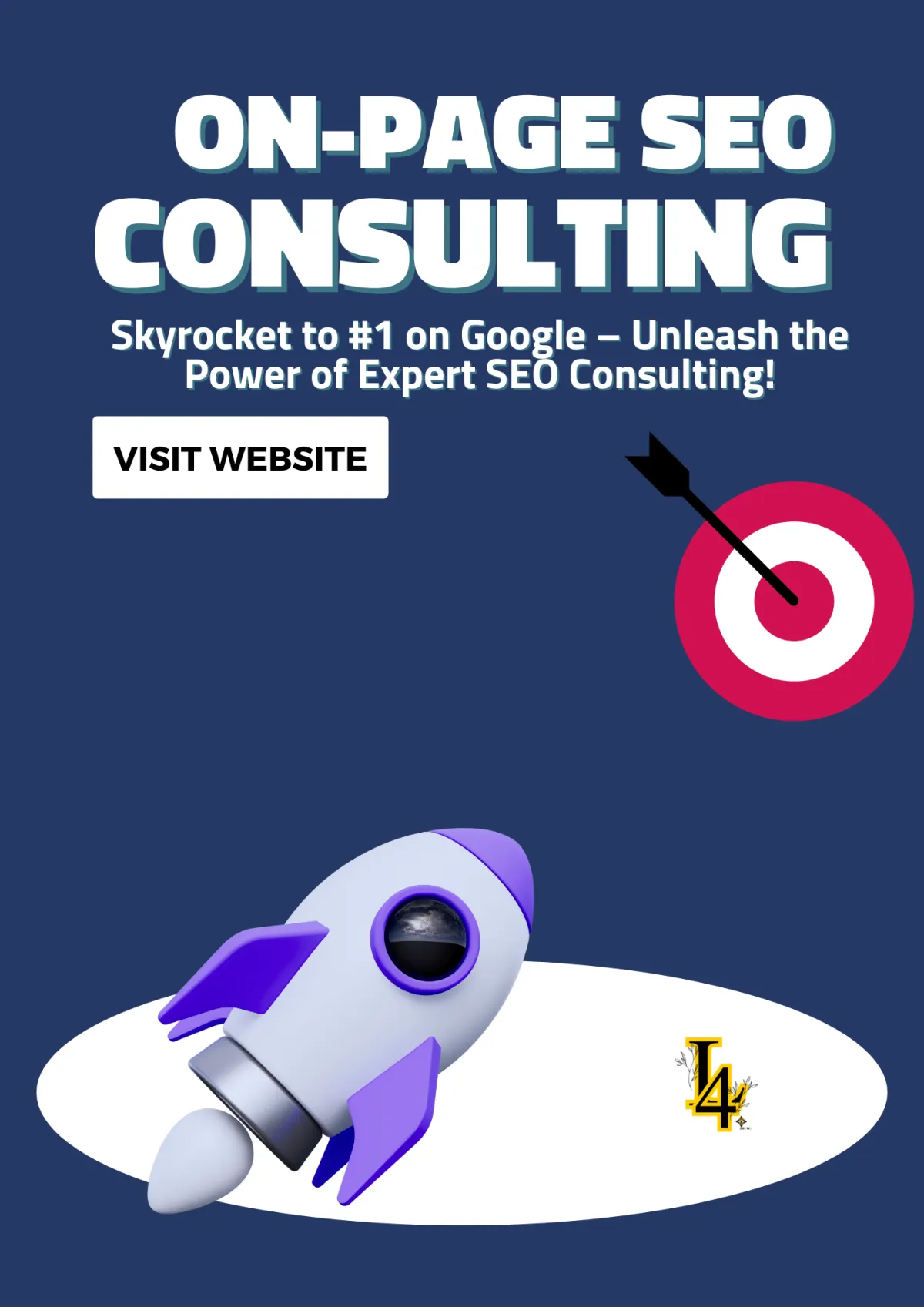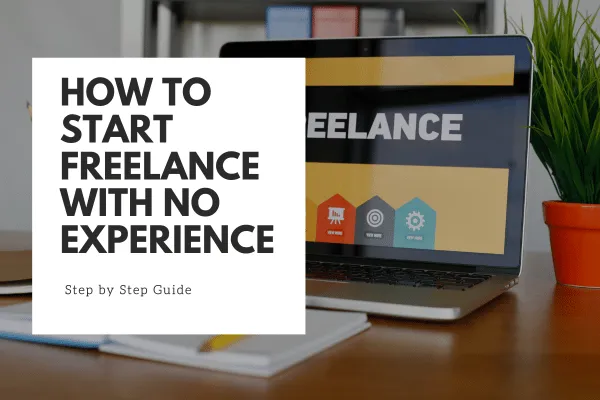
How to Start a Search Engine Optimization Business with No Experience!
Ever wondered how to start a search engine optimization business and turn it into a six-figure success? The demand for SEO services is higher than ever, with businesses actively looking for experts to help them rank on Google. But how do you go from learning SEO to building a profitable SEO agency? The key lies in mastering SEO, finding the right clients, and using powerful tools like SEMrush and SpyFu to outperform the competition. Let’s dive in!
How to Start a Search Engine Optimization Business with No Experience!
How to Start a Search Engine Optimization (SEO) Business: A Step-by-Step Guide
Step 1: Master SEO Skills & Stay Updated
Essential SEO Skills You Need to Learn
1. Keyword Research: Finding High-Intent Keywords
2. On-Page SEO: Optimizing Website Content
3. Technical SEO: Fixing Website Performance Issues
4. Link Building: Earning Quality Backlinks
5. Local SEO: Ranking in Google Maps & Local Searches
6. SEO Analytics: Tracking Performance & Making Data-Driven Decisions
Step 2: Define Your SEO Services
Types of SEO Services You Can Offer:
📌 Examples of Niches You Can Target:
Why Specializing in a Niche Matters
Step 3: Set Up Your SEO Business
1. Choose a Business Name & Register It
2. Build a Professional Website
3. Set Up Business Email & Communication Tools
5. Establish Your Online Presence
6. Set Up Lead Generation Systems
Step 4: Get Your First SEO Clients
1. Offer Free or Discounted SEO Audits to Attract Leads
2. Use Freelance Platforms to Get Paid SEO Gigs
3. Network in Facebook Groups & LinkedIn to Find Clients
4. Partner with Web Designers & Marketing Agencies
5. Run Your Own SEO Campaigns to Attract Clients
6. Showcase Your Results & Ask for Referrals
Step 5: Scale & Automate Your SEO Business
1. Productize Your SEO Services
3. Create Recurring Revenue Streams
The Best SEO Tools for Starting & Scaling Your SEO Business
1. SEMrush – The All-in-One SEO Powerhouse
Key Features of SEMrush for SEO Businesses:
How SEMrush Helps SEO Businesses Win Clients
2. SpyFu – The Ultimate Competitor Intelligence Tool
Key Features of SpyFu for SEO Businesses:
How SpyFu Helps SEO Businesses Gain an Advantage
Other Essential SEO Tools for an SEO Business
🔹 Reporting & Client Management
Why SEMrush & SpyFu Are My Top Picks
Conclusion: The Key to a Successful SEO Business? Strategy, Automation, and the Right Tools!
What is an SEO Business and Why Should You Start One
Starting an SEO business is one of the best ways to build a profitable and scalable online service-based company. With businesses increasingly relying on search engines to drive traffic, SEO has become a high-demand skill that companies are willing to invest in. But how do you start your own SEO agency from scratch?
In this guide, I’ll walk you through everything you need to know—from learning SEO skills to getting your first clients and scaling your business.


Step 1: Master SEO Skills & Stay Updated
Before you start offering SEO services, you need to build a solid foundation in search engine optimization. The SEO landscape is always evolving, with Google rolling out algorithm updates multiple times a year. If you don’t stay on top of these changes, your strategies could become outdated, hurting your results and credibility.
To run a successful SEO business, you must be proficient in multiple aspects of SEO, from keyword research to technical optimization and SEO analytics. Below are the core SEO skills you need to master.
Essential SEO Skills You Need to Learn

1. Keyword Research: Finding High-Intent Keywords
Keyword research is the foundation of SEO. Understanding which keywords to target can make or break a campaign. You must learn to:
✅ Identify high-search volume, low-competition keywords using tools like SEMrush, SpyFu, and Ahrefs.
✅ Analyze search intent—whether users are looking for information, services, or products.
✅ Use long-tail keywords that drive more targeted traffic.
✅ Find competitor keywords to discover untapped opportunities.
📌 Example: A local bakery wants to attract more customers. Instead of targeting broad keywords like "best cakes", a more effective keyword would be "custom birthday cakes in Miami", which has lower competition and higher purchase intent.
2. On-Page SEO: Optimizing Website Content

On-page SEO ensures that search engines understand your content and that users have a good experience. Learn how to:
✅ Write SEO-friendly title tags & meta descriptions.
✅ Structure content using H1, H2, and H3 headers.
✅ Optimize URLs to be short and keyword-rich.
✅ Improve internal linking to guide users and search engines through your site.
✅ Use alt text for images to improve accessibility and rankings.
📌 Example: Instead of a generic blog title like "Tips for Running", optimize it to "5 Proven Running Tips for Beginners to Improve Endurance", making it more relevant to user searches.
3. Technical SEO: Fixing Website Performance Issues
Technical SEO ensures that your website is fast, crawlable, and mobile-friendly. You must learn to:
✅ Improve site speed (Google recommends under 3 seconds).
✅ Fix broken links, redirect issues, and indexing problems.
✅ Ensure mobile responsiveness since over 60% of web searches come from mobile devices (Source: Statista).
✅ Implement structured data (Schema markup) to enhance search results.
✅ Optimize XML sitemaps & robots.txt files for better indexing.
📌 Example: A slow-loading eCommerce website might lose thousands of dollars in sales. By compressing images, using a Content Delivery Network (CDN), and minifying code, you can cut loading times in half and boost conversions.
4. Link Building: Earning Quality Backlinks
Backlinks remain a major ranking factor in SEO. You need to understand:
✅ How to acquire high-quality, relevant backlinks (not spammy links).
✅ Strategies like guest posting, HARO (Help A Reporter Out), and digital PR.
✅ How to use competitor backlink analysis to find link opportunities.
✅ The risks of black-hat SEO tactics that could result in penalties.
📌 Example: If a real estate agency gets backlinks from high-authority property websites like Zillow, it will significantly boost its rankings and credibility.
5. Local SEO: Ranking in Google Maps & Local Searches
For businesses targeting local customers, you must master Local SEO, including:
✅ Optimizing Google My Business (GMB) profiles with keywords, images, and reviews.
✅ Getting local citations (business listings on directories like Yelp, Angi, and TripAdvisor).
✅ Encouraging customer reviews to build trust.
✅ Using local keywords like “best Italian restaurant in Chicago” instead of broad terms like “Italian restaurant”.
✅ Adding NAP (Name, Address, Phone Number) consistency across all online platforms.
📌 Example: A plumbing company optimized its Google My Business profile, resulting in a 120% increase in calls from local customers within three months.
6. SEO Analytics: Tracking Performance & Making Data-Driven Decisions
SEO is not set-it-and-forget-it—you need to continuously analyze data and adjust strategies. Learn how to:
✅ Use Google Analytics to track traffic, bounce rates, and conversions.
✅ Monitor rankings and organic search trends with Google Search Console.
✅ Analyze backlinks, keyword rankings, and traffic sources with SEMrush & SpyFu.
✅ Run SEO audits to find weak spots in a website’s performance.
✅ Set Key Performance Indicators (KPIs) to measure success.
📌 Example: A marketing agency found that 50% of their organic traffic came from blog posts. By optimizing old blog content, they increased lead generation by 30% in two months.
Where to Learn SEO for Free
✅ Google’s SEO Starter Guide – A great introduction to how search works.
✅ Google Digital Garage (SEO Fundamentals Course) – Free lessons straight from Google.
✅ Moz’s Beginner’s Guide to SEO – A well-structured guide for SEO newcomers.
✅ Ahrefs YouTube Channel – Offers practical, easy-to-follow SEO tutorials.
✅ SEMrush Academy – Free courses on keyword research, link building, and analytics.
✅ HubSpot SEO Training – A beginner-friendly SEO course with actionable tips.
📌 Pro Tip: Combine free learning with hands-on experience. Start optimizing your own website or offer free SEO audits to small businesses to gain experience.
🔹 Pro Tip: If you're new to SEO, practice on your own website before offering services.

Step 2: Define Your SEO Services
SEO is a broad field, so niching down can help you stand out in the crowded market. Instead of offering generic SEO, specialize in a specific area or industry. By defining your services clearly, you can attract the right clients, streamline your processes, and position yourself as an expert in your chosen niche.
Types of SEO Services You Can Offer:
🔹 Local SEO – Helping small businesses rank in Google Maps, optimize their Google My Business (GMB) profiles, and appear in local search results.
🔹 E-commerce SEO – Optimizing Shopify, WooCommerce, and other e-commerce platforms for better rankings, product visibility, and sales conversions.
🔹 Technical SEO Audits – Finding and fixing website issues such as crawl errors, site speed problems, schema markup implementation, and mobile responsiveness.
🔹 SEO Content Writing – Creating keyword-optimized blog posts, website content, and landing pages that drive traffic and conversions.
🔹 Full-Service SEO – Handling everything from strategy to execution, including keyword research, on-page optimization, backlink building, and performance tracking.
🔹 SEO Consulting – Providing expert advice to businesses looking to improve their search rankings, create content strategies, or troubleshoot SEO challenges.
🔹 Enterprise SEO – Managing large-scale SEO strategies for corporations with thousands of pages, international websites, or complex technical structures.
🔹 White Label SEO – Partnering with agencies that need SEO services under their brand without hiring in-house experts.
📌 Examples of Niches You Can Target:

🔹 Real Estate SEO – Helping real estate agents and property management firms rank for local searches, optimize their listings, and generate leads through organic search.
🔹 Healthcare SEO – Assisting medical practices, dentists, and healthcare providers in improving their search visibility, ensuring compliance with medical advertising regulations, and increasing patient bookings.
🔹 Law Firm SEO – Optimizing law firm websites to rank for competitive legal keywords, drive traffic, and attract high-value clients.
🔹 SaaS SEO – Tailoring SEO strategies for software-as-a-service businesses to generate sign-ups, demo requests, and organic leads.
🔹 E-commerce SEO – Helping online stores increase product visibility, improve site structure, and rank higher in Google’s product search results.
🔹 Hospitality & Travel SEO – Working with hotels, restaurants, and travel agencies to enhance their online presence and attract more bookings through search engines.
🔹 Automotive SEO – Assisting car dealerships, auto repair shops, and automotive service providers in capturing more local leads and customers.
🔹 Finance & Insurance SEO – Optimizing content and keywords for financial advisors, banks, and insurance companies to build authority and attract clients.
Why Specializing in a Niche Matters
🔹 Higher Client Trust – When you focus on a specific industry, potential clients see you as a specialist rather than a generalist, increasing your credibility and trustworthiness.
🔹 Better Results – With industry experience, you’ll understand the search behavior, pain points, and content strategies that work best for a particular niche, leading to more effective campaigns.
🔹 Stronger Portfolio – Specializing allows you to build case studies and testimonials within an industry, making it easier to land new clients who recognize your expertise.
🔹 Easier Marketing & Lead Generation – Instead of targeting broad audiences, you can tailor your marketing efforts to specific business owners, making lead generation more efficient and effective.
🔹 Higher Pricing Potential – Niche expertise allows you to command higher fees because businesses prefer working with SEO specialists who understand their market.
🔹 Less Competition – Competing in a broad SEO market is tough, but focusing on a niche significantly reduces competition and increases your chances of landing long-term clients.
🔹 Improved Process Efficiency – When you repeatedly work within a niche, you develop proven processes and workflows that make delivering results faster and more efficient.
How to Choose Your SEO Niche
🔹 Leverage Past Experience – If you have previous experience in a specific industry (e.g., healthcare, finance, real estate), use that expertise to build your niche SEO services.
🔹 Analyze Market Demand – Use tools like Google Trends, Ahrefs, and SEMrush to determine the demand for SEO in various industries.
🔹 Assess Competition Levels – Some niches, such as legal and e-commerce SEO, are highly competitive. If you’re starting, consider targeting a smaller, less saturated market.
🔹 Test & Validate Your Niche – Before committing, work with a few clients in your chosen niche to see if you enjoy the work and can deliver results.
🔹 Follow Industry Trends – Stay up to date with Google algorithm changes, new SEO techniques, and market trends to ensure your niche remains profitable.
🔹 Pro Tip: Specializing in a niche makes it easier to attract clients because you become an expert in that industry. Instead of trying to serve everyone, focus on a target market that aligns with your skills and interests. By defining your SEO services and choosing the right niche, you’ll set yourself up for long-term success in the SEO business.

Step 3: Set Up Your SEO Business
Once you’ve mastered SEO and defined your services, it's time to establish your business legally and professionally. A solid foundation will not only make you look credible but also help streamline operations as you start scaling.
1. Choose a Business Name & Register It
Your business name should reflect your expertise in SEO and resonate with potential clients. Here are some strategies to pick a strong SEO business name:
✅ Keep it simple and easy to remember
✅ Include industry-related terms like “SEO,” “Rank,” “Search,” or “Digital”
✅ Avoid generic names—make it unique to stand out
Examples of SEO Business Names:
RankBoost SEO
Search Engine Pros
Local SEO Experts
SERP Dominators
First Page Gurus
Once you've chosen a name, you need to register your business legally:
🔹 Sole Proprietorship: The simplest option if you’re a freelancer or running solo. Minimal paperwork but limited legal protection.
🔹 LLC (Limited Liability Company): Offers personal liability protection and credibility. Recommended for most SEO agencies.
🔹 Corporation (S-Corp or C-Corp): Best if you plan to scale and hire employees but requires more legal and tax documentation.
📌 Pro Tip: Use a service like LegalZoom or IncFile to quickly register your business without hiring a lawyer.
2. Build a Professional Website
Your website is your digital storefront—clients will judge your SEO expertise based on how well-optimized and professional it looks. A poorly designed site will hurt your credibility, while a sleek, SEO-optimized website will attract and convert potential clients.
💡 Essential Website Pages:
✅ Homepage: Clearly state what you do and who you help. Example: "We Help Small Businesses Dominate Google Rankings with Proven SEO Strategies."
✅ Services Page: List your SEO services with clear descriptions and pricing options (or offer custom quotes).
✅ Case Studies/Portfolio: Showcase real SEO results, rankings, and success stories to build credibility.
✅ Blog: Regularly publish SEO-focused content to attract organic traffic and position yourself as an industry expert.
✅ Contact Page: Make it easy for clients to reach out with a form, phone number, and email.
🚀 Additional Enhancements:
✔️ Add an SEO Audit Form – Offer a free website audit to collect leads.
✔️ Integrate Live Chat – Tools like Tawk.to or LiveChat can improve conversions.
✔️ Optimize for Speed – Use tools like Google PageSpeed Insights to ensure fast loading times.
📌 Pro Tip: Use WordPress + Elementor for an SEO-friendly, easily customizable website.
3. Set Up Business Email & Communication Tools
Professional communication is key to establishing trust with clients. Ditch free emails like @gmail.com and set up a business email.
✅ Get a Professional Email
Use Google Workspace (Gmail for business) to create an email like:
yourname@yourseoagency.com
✅ Use a CRM (Client Relationship Management) System
Track leads, client projects, and follow-ups using tools like:
HubSpot CRM (Free for basic use)
Zoho CRM
✅ SEO Tools for Research & Execution
Invest in premium SEO tools to deliver top-notch results for clients:
SEMrush – Best for keyword research & competitive analysis
SpyFu – Excellent for competitor PPC & backlink insights
Ahrefs – Great for backlink research
Google Search Console – Free tool for site indexing & analytics
✅ Project Management for Client Work
Manage tasks, deadlines, and SEO campaigns with tools like:
Trello (Simple drag-and-drop task management)
Asana (Advanced project tracking)
ClickUp (All-in-one project management)
✅ SEO Reporting Software
Clients expect detailed performance reports. Automate your reporting with:
Google Data Studio (Custom SEO dashboards)
AgencyAnalytics (White-label reports for agencies)
📌 Pro Tip: Set up an onboarding document using Notion or Google Docs to streamline how you onboard new clients.
4. Legal & Financial Setup
To operate smoothly, you need a business bank account and an invoicing system to handle payments.
✅ Open a Business Bank Account
Keep your business finances separate from personal transactions. Recommended banks for small businesses:
Chase Business Banking
Bank of America Small Business
Wise (For International Payments)
✅ Set Up Payment Processing
Make it easy for clients to pay you online:
PayPal Business (Good for global payments)
Stripe (Best for credit card transactions)
QuickBooks Payments (For integrated bookkeeping)
✅ Use an Accounting Tool for Taxes & Invoicing
QuickBooks (Most widely used for small businesses)
Wave (Free invoicing for freelancers)
📌 Pro Tip: Set up automated invoices so clients receive payment reminders.
5. Establish Your Online Presence
Your website isn’t the only place where clients will find you. You need to build social proof and authority across multiple platforms.
✅ Create a LinkedIn Business Page – Many B2B clients search for agencies on LinkedIn.
✅ Claim Your Google My Business Profile – If offering Local SEO, get listed on Google Maps.
✅ Get Listed on SEO Directories – Sites like Clutch, Upwork, and Credo can generate leads.
✅ Start a YouTube Channel – Share SEO tutorials and case studies for brand awareness.
📌 Pro Tip: Join SEO-related Facebook & LinkedIn groups to network and attract clients.
6. Set Up Lead Generation Systems
The best SEO businesses don’t wait for clients—they actively generate leads through various channels.
🚀 How to Get Clients for Your SEO Business: ✅ Cold Outreach: Reach out to businesses that need SEO help via LinkedIn or email.
✅ Networking: Connect with web designers, agencies, and freelancers who may need SEO partnerships.
✅ Inbound Marketing: Publish SEO guides and case studies to attract clients via organic traffic.
✅ Facebook & Google Ads: Run targeted ads offering free SEO audits to capture leads.
✅ Referral Program: Offer a commission or discount for referrals from past clients.
📌 Pro Tip: Run a lead magnet campaign (e.g., "Download a Free SEO Checklist") to collect emails and follow up.

Step 4: Get Your First SEO Clients
One of the biggest challenges when learning how to start a search engine optimization business is securing your first paying clients. Without a portfolio or case studies, convincing businesses to trust you can be tough. However, there are proven strategies to attract your first clients, build credibility, and establish your SEO brand.
1. Offer Free or Discounted SEO Audits to Attract Leads
When you're just starting, you need a way to showcase your expertise. Offering a free or discounted SEO audit is one of the fastest ways to gain a potential client’s interest. Most business owners are unaware of their website’s SEO issues, so an audit provides instant value and positions you as the solution.
🔹 How It Works:
Use tools like SEMrush, Ahrefs, or Google Search Console to analyze their website’s health.
Identify common SEO problems (slow site speed, missing meta tags, poor keyword optimization, etc.).
Offer a personalized report that highlights key issues and suggests solutions.
📌 Example Cold Outreach Message:
"Hi [Client’s Name], I came across your website and noticed it isn’t ranking well for [keyword]. I did a quick SEO audit and found a few areas that could improve your visibility on Google. I’d be happy to send you a free report with insights—let me know if you’re interested!"
Why This Works: ✅ Builds immediate trust by providing real value upfront.
✅ Helps you start a conversation with potential clients without hard selling.
✅ Converts prospects into paying clients once they see your expertise.
Pro Tip: Use a landing page on your website where visitors can request a free SEO audit in exchange for their email address. This builds your email list while generating leads.
2. Use Freelance Platforms to Get Paid SEO Gigs
Freelance websites are a goldmine for finding businesses that are actively searching for SEO services. If you're learning how to start a search engine optimization business, these platforms are an easy way to build your portfolio and gain credibility.
🔹 Best Freelance Platforms for SEO Services:
Upwork – High-paying SEO gigs but requires a strong profile.
Fiverr – Great for selling SEO audits, keyword research, and local SEO setup.
PeoplePerHour – Ideal for long-term SEO projects.
Freelancer – Competitive, but good for getting started.
How to Stand Out on Freelance Sites: ✅ Optimize Your Profile – Clearly list your SEO skills, experience, and services.
✅ Showcase Results – Even if you’ve only optimized your own website, share your rankings.
✅ Start Small – Offer a low-cost package initially to build reviews and attract clients.
📌 Example Gig Title:
"I Will Perform an SEO Audit and Boost Your Website’s Google Ranking."
🚀 Pro Tip: Offer a "SEO Starter Package" (keyword research + basic on-page optimization) as a low-cost introductory service. Once you gain their trust, upsell them to a full-service SEO package.
3. Network in Facebook Groups & LinkedIn to Find Clients
If you're not leveraging social media networking, you're missing out on free client opportunities. Many business owners are actively looking for SEO help inside Facebook and LinkedIn groups.
🔹 How to Use Facebook & LinkedIn to Get SEO Clients:
Join groups for small business owners, entrepreneurs, and digital marketing.
Engage in discussions by providing SEO advice (without selling).
Post helpful SEO tips, case studies, or success stories to attract leads.
📌 Example Facebook Post:
"SEO Tip: If your website isn’t showing up on Google, you may have an indexing issue. Drop your URL in the comments, and I’ll check it for free!"
Why This Works: ✅ Establishes you as the SEO expert in the group.
✅ Provides free exposure without running paid ads.
✅ Attracts warm leads (businesses that need help and see your value).
🚀 Pro Tip: Message group admins and offer to provide free SEO training for members. This positions you as an expert and brings inbound leads.
4. Partner with Web Designers & Marketing Agencies
Many web design and marketing agencies do not offer SEO services but still have clients who need them. By partnering with these businesses, you can secure ongoing SEO referrals without chasing individual clients.
🔹 How to Find Web Design Agencies That Need SEO Help:
Look for local web development firms that only build websites (without SEO).
Reach out to graphic designers, branding experts, and marketing consultants who work with businesses needing SEO.
Offer a commission for every SEO referral they send your way.
📌 Example Outreach Message:
"Hi [Agency Name], I see that you specialize in web design. Many business owners struggle to rank on Google after launching a website. I’d love to partner with you and offer SEO services to your clients. Happy to discuss how we can collaborate!"
Why This Works: ✅ Win-win partnership – They get to offer SEO without doing the work.
✅ Built-in trust – Clients are more likely to hire you through a trusted referral.
✅ Consistent leads – No need to chase clients when agencies send them to you.
🚀 Pro Tip: Create a white-label SEO service where agencies resell your SEO work under their brand.
5. Run Your Own SEO Campaigns to Attract Clients
If you're serious about learning how to start a search engine optimization business, you should practice what you preach—by ranking your own website on Google.
🔹 Steps to Get Clients Through Your Own SEO Campaigns:
✅ Write blog posts targeting high-intent keywords (e.g., “Best Local SEO Strategies for Small Businesses”).
✅ Optimize your Google My Business profile to attract local SEO clients.
✅ Build backlinks and guest posts to establish authority.
✅ Publish SEO case studies and share them in online communities.
📌 Example Blog Post Titles:
“How to Start a Search Engine Optimization Business: Step-by-Step Guide”
“Local SEO Strategies to Rank #1 on Google in 2024”
“SEO Case Study: How I Took a Website from Page 5 to Page 1 in 90 Days”
🚀 Pro Tip: Run Google Ads targeting "SEO services near me" to generate inbound leads.
6. Showcase Your Results & Ask for Referrals
Once you've helped a few clients, use proof of success to attract new clients.
🔹 How to Turn Happy Clients Into More Clients:
✅ Ask satisfied clients for testimonials & case studies.
✅ Offer a referral discount (e.g., "Refer a business, and both of you get 10% off your next service").
✅ Showcase before-and-after SEO rankings on your website & social media.
📌 Example Testimonial Request:
"Hi [Client's Name], I’m glad we helped improve your Google rankings! Would you mind sharing a short testimonial about your experience? It helps us build trust with new clients. Thanks!"

Step 5: Scale & Automate Your SEO Business
Once you have consistent clients, it’s time to scale up.
1. Productize Your SEO Services
Instead of custom pricing for every client, create SEO packages like: ✅ Basic SEO Audit – $299
✅ Local SEO Package – $699/month
✅ Full-Service SEO – $1,499/month
🔹 Pro Tip: Productized services make it easier to sell and deliver SEO without custom proposals.
2. Automate & Delegate
As you grow, you can’t do everything yourself. Start hiring:
SEO Assistants – For research & audits.
Content Writers – To produce optimized blog posts.
Link Builders – To handle backlinks.
Use Zapier, Trello, and Google Sheets to automate reporting and client updates.
3. Create Recurring Revenue Streams
To make your SEO business more profitable and predictable, focus on monthly retainer clients instead of one-time projects.
📌 Example Recurring Services:
Monthly SEO Reports & Optimization – $599/month
Ongoing Link Building – $1,200/month
SEO-Optimized Blog Content – $500/month
🔹 Pro Tip: Recurring clients = stable income for long-term growth.
Starting an SEO business is one of the best ways to make money online while helping businesses grow. But success doesn’t happen overnight. It takes time, effort, and continuous learning.
Key Takeaways:
✅ Master SEO skills before offering services.
✅ Pick a niche to stand out in the SEO industry.
✅ Set up your website & business tools for credibility.
✅ Find your first clients through audits, networking, and freelancing.
✅ Scale with automation & recurring revenue for long-term success.


The Best SEO Tools for Starting & Scaling Your SEO Business
If you want to run a successful SEO business, having the right tools is non-negotiable. SEO tools save time, improve accuracy, and allow you to deliver high-quality results to clients. Whether you're conducting keyword research, optimizing on-page SEO, analyzing backlinks, or generating reports, investing in the right SEO tools will set you apart from competitors.
Among the many SEO tools available, SEMrush and SpyFu stand out as two of the most powerful, versatile, and insightful tools for SEO professionals. Here’s why:
1. SEMrush – The All-in-One SEO Powerhouse
Why SEMrush?
SEMrush is one of the most trusted SEO platforms in the industry. Used by digital marketers, agencies, and Fortune 500 companies, it offers over 50 tools that cover everything from keyword research to competitor analysis, backlink audits, and SEO content strategy.
Key Features of SEMrush for SEO Businesses:
✅ Keyword Research – Find high-traffic, low-competition keywords using Keyword Magic Tool
✅ Competitor Analysis – Discover competitors’ best-performing keywords, backlinks, and traffic sources
✅ Backlink Analysis – Uncover toxic links, analyze competitors’ backlinks, and improve link-building strategy
✅ SEO Content Optimization – Use SEO Writing Assistant to optimize content for readability and keywords
✅ Technical SEO Audits – Identify site speed issues, broken links, and indexability problems
✅ Local SEO Features – Manage Google My Business (GMB) listings, track local keyword rankings, and optimize for local search
📌 Expert Tip: If you're running an SEO business, SEMrush’s "Projects" feature allows you to manage multiple clients, track rankings, and audit websites all in one place.
How SEMrush Helps SEO Businesses Win Clients
Competitive Edge: Impress potential clients by showing them a detailed breakdown of how their competitors are performing.
Data-Driven SEO Plans: Create custom SEO strategies based on real-time data rather than guesswork.
Reporting Made Easy: Generate professional, white-labeled reports to send to clients with just a few clicks.
📊 Pricing:
💰 SEMrush starts at $129.95/month for the Pro Plan, but the Guru Plan ($249.95/month) is better suited for agencies managing multiple SEO projects.
2. SpyFu – The Ultimate Competitor Intelligence Tool
Why SpyFu?
SpyFu is one of the best SEO tools for competitive analysis, especially for finding your competitors' paid and organic strategies. It is incredibly powerful for PPC & SEO businesses that want to spy on competitors’ most profitable keywords and backlinks.
Key Features of SpyFu for SEO Businesses:
✅ Competitor Keyword Research – See every keyword your competitor ranks for in Google Search & Google Ads
✅ SEO Ranking History – Track competitors' organic rankings over time to spot trends
✅ PPC Ad Insights – Discover which Google Ads perform best for your competitors
✅ Backlink Analysis – Find where competitors are getting backlinks and reverse-engineer their strategy
✅ Domain SEO Reports – Get a detailed report of any website’s SEO & PPC performance
📌 Expert Tip: SpyFu’s "Kombat Tool" allows you to compare your website against competitors and find untapped keyword opportunities.
How SpyFu Helps SEO Businesses Gain an Advantage
Pitching Clients: Show potential clients how their competitors are ranking and how you can help them catch up.
Building Winning SEO Strategies: Uncover competitor gaps and target high-value keywords with lower competition.
Maximizing PPC ROI: Help clients optimize their Google Ads spend by focusing on proven keywords.
📊 Pricing:
💰 SpyFu starts at $39/month for Basic Plan and goes up to $299/month for agencies needing unlimited data exports and tracking.

Other Essential SEO Tools for an SEO Business
While SEMrush and SpyFu are my top two choices, you should also have these tools in your SEO toolkit:
🔹 Keyword Research
✅ Ahrefs – Best for backlink analysis and keyword difficulty scores
✅ Ubersuggest – Budget-friendly option for keyword research
🔹 On-Page SEO
✅ Yoast SEO – WordPress plugin for optimizing content
✅ Surfer SEO – AI-driven content optimization
🔹 Technical SEO
✅ Screaming Frog – Website crawler for finding broken links and SEO issues
✅ Google Search Console – Free tool for monitoring search performance
🔹 Reporting & Client Management
✅ Google Data Studio – Customizable SEO reports
✅ AgencyAnalytics – Automated SEO reporting for agencies
Why SEMrush & SpyFu Are My Top Picks
✅ SEMrush is the most powerful all-in-one SEO tool for keyword research, audits, content optimization, and reporting—perfect for SEO businesses handling multiple clients.
✅ SpyFu is the best competitor research tool—giving you insights into what’s working for competitors so you can reverse-engineer their success.
📌 Pro Tip: If you're starting an SEO business, investing in SEMrush + SpyFu will give you a major competitive advantage and help you land clients faster. 🚀

Conclusion: The Key to a Successful SEO Business? Strategy, Automation, and the Right Tools!
Starting an SEO business isn’t just about knowing how search engines work—it’s about leveraging the right strategies, tools, and automation to deliver results. By mastering SEO skills, defining your niche, building a strong online presence, and using data-driven insights from SEMrush and SpyFu, you can set yourself apart from the competition.
The best part? SEO is a long-term game, meaning once you build a steady client base, your income becomes predictable, and scaling your business becomes easier. Whether you’re starting with small businesses or aiming to manage large-scale SEO projects, the formula remains the same: deliver results, stay updated, and use the best tools to optimize your workflow.
More Articles
Web Design Articles
Turn Clicks to Cash: Build a Web Template That’s Straight Heat
Free IT Website HTML Templates: Download and Build Your Dream Site Today!
Scrapbooking’s Digital Makeover: Trends That Blend Nostalgia and Innovation
Minimalism with a twist: Web design that speaks volumes
Search Engine Marketing in 2025: How Consultants Maximize ROI & Avoid Costly Mistakes
SEO Related Articles
11 Benefits of Using SEO Software for Online Business Growth
Unlock Business Growth with Powerful Search Engine Services
Which Report Indicates How Traffic Arrived at a Website?
Get 10X More Leads Overnight! The SEO Lead Generation Blueprint That Works























